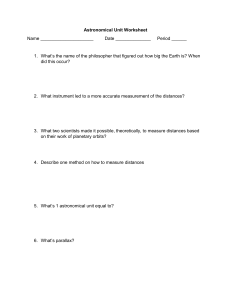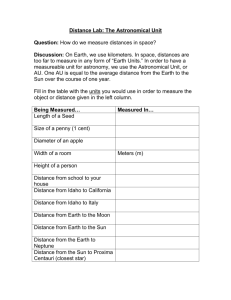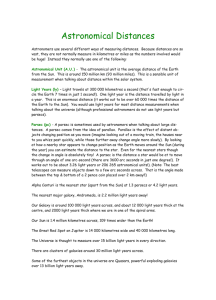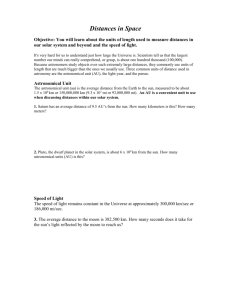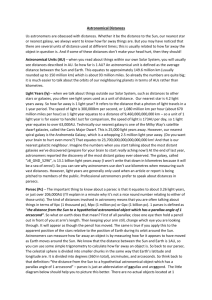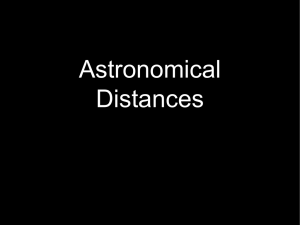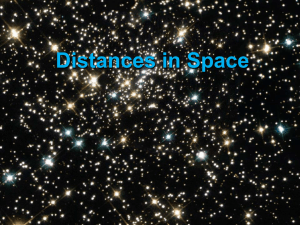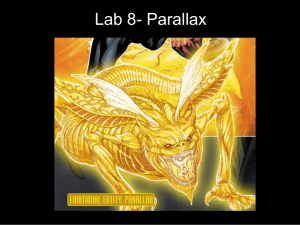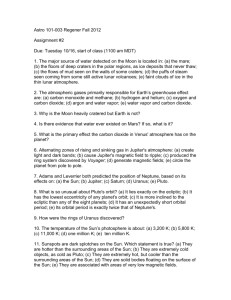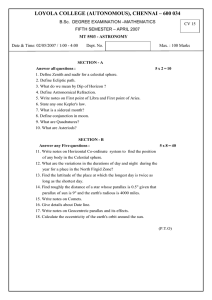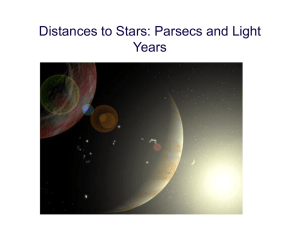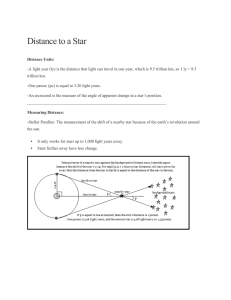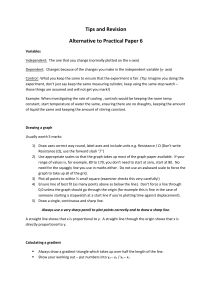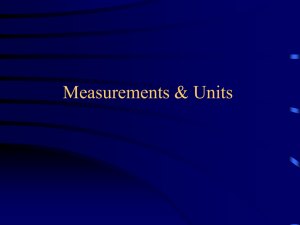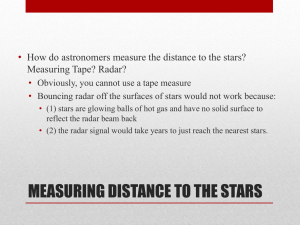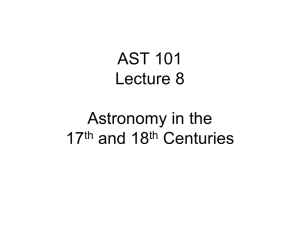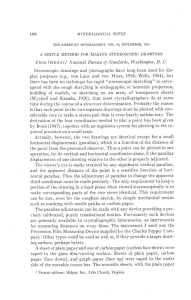Measuring Distances in Space
advertisement
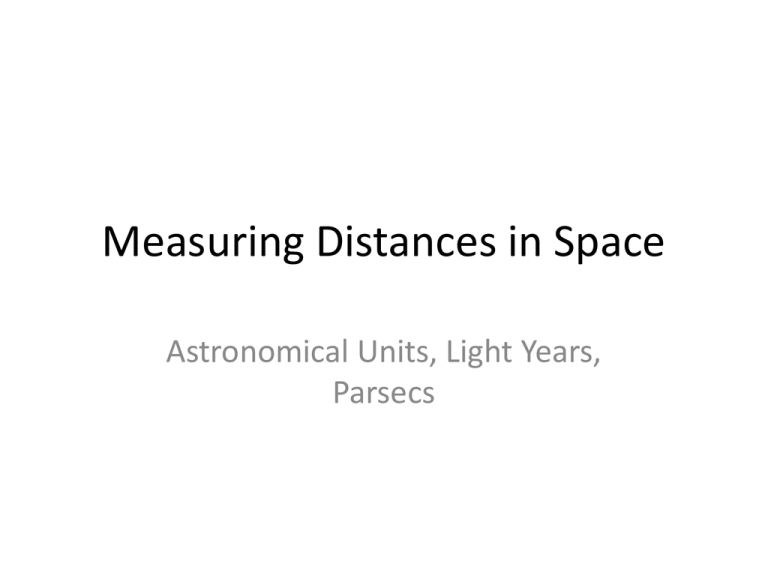
Measuring Distances in Space Astronomical Units, Light Years, Parsecs Measuring distances in space • The universe is enormous! • Units of measurement on Earth are too small • Other units are used instead Astronomical Units • Used for measuring distances in the solar system • Symbol: AU • The distance between the SUN and the EARTH is 15 million km (15,000,000). • 15 million km = 1 AU Distance to Other Planets • • • • • • • • Sun-Mercury = 0.39 AU Sun-Venus = 0.72 AU Sun to Mars = 1.52 AU Sun to Jupiter = 5.20 AU Sun to Saturn = 9.54 AU Sun to Uranus = 19.18 AU Sun to Neptune = 30.06 AJ Sun to Pluto = 39.53 AU Light Years • For objects that are VERY far away like stars, astronomers use light years to measure distance. • Definition: The distance light travels in one year = 9,460,000,000,000 km (nearly 9.5 trillion km) • Light travels 300,000 km/sec • The closest star to earth (excluding the sun) is 4.22 light years away (Alpha Centauri) Light Years • If you could drive nonstop to the sun at 60 mph, it would take 180 years. • Light makes the same trip in eight minutes. So the sun is about eight light-minutes away. Distances in Light Years • • • • • Sirius-brightest star in the sky: 8.6 light years Rigel-brightest star in Orion: 777 light years Center of the Milky Way galaxy: 27,700 ly Furthest galaxy seen in the universe: 15 Bill ly Sun to Pluto is 13 light hours (0.0015 light years) Parsecs & Parallax • Parsec = 3.26 light years • Parsec = “Parallax of one arc second” Parallax • Definition: difference in the apparent position of an object viewed along two different lines of sight • Used to determine the distance to celestial objects Parallax Units What unit would you use to measure the distance between: • Jupiter – Saturn? • Earth – Rigel? • Edge of the Milky Way – Center of MW? • Sun-Edge of the solar system?
